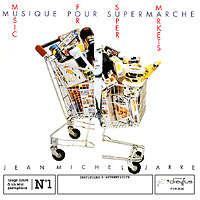Woebot
Well-known member
This is gonna be pretty slight so bear with me 
It strikes me that the general drive with regards to music (possibly a reaction to capitalisms strategy of "burn the past") is to try and make it as eternal as possible. Musicians and the machine of production seem to try to engrave music with as much permanence as possible. The whole drive of the industry, in the manner that people are encouraged, lured even, to buy music as a way of "fixing it" is centred around this.
As you go deeper into the underground of music, rather than finding the same tactic which characterises pop's consumption (stockpiling) you find composers like La Monte Young trying to build musics which last millenia. Even the whole mp3/digital approach to music seems like a tactic to preserve music forever. Backed up your hard drive?
Rhetorically speaking here, is there a music which strives in the other direction? Towards impermanence and emphemerality. A fleeting music?
It strikes me that the general drive with regards to music (possibly a reaction to capitalisms strategy of "burn the past") is to try and make it as eternal as possible. Musicians and the machine of production seem to try to engrave music with as much permanence as possible. The whole drive of the industry, in the manner that people are encouraged, lured even, to buy music as a way of "fixing it" is centred around this.
As you go deeper into the underground of music, rather than finding the same tactic which characterises pop's consumption (stockpiling) you find composers like La Monte Young trying to build musics which last millenia. Even the whole mp3/digital approach to music seems like a tactic to preserve music forever. Backed up your hard drive?
Rhetorically speaking here, is there a music which strives in the other direction? Towards impermanence and emphemerality. A fleeting music?

